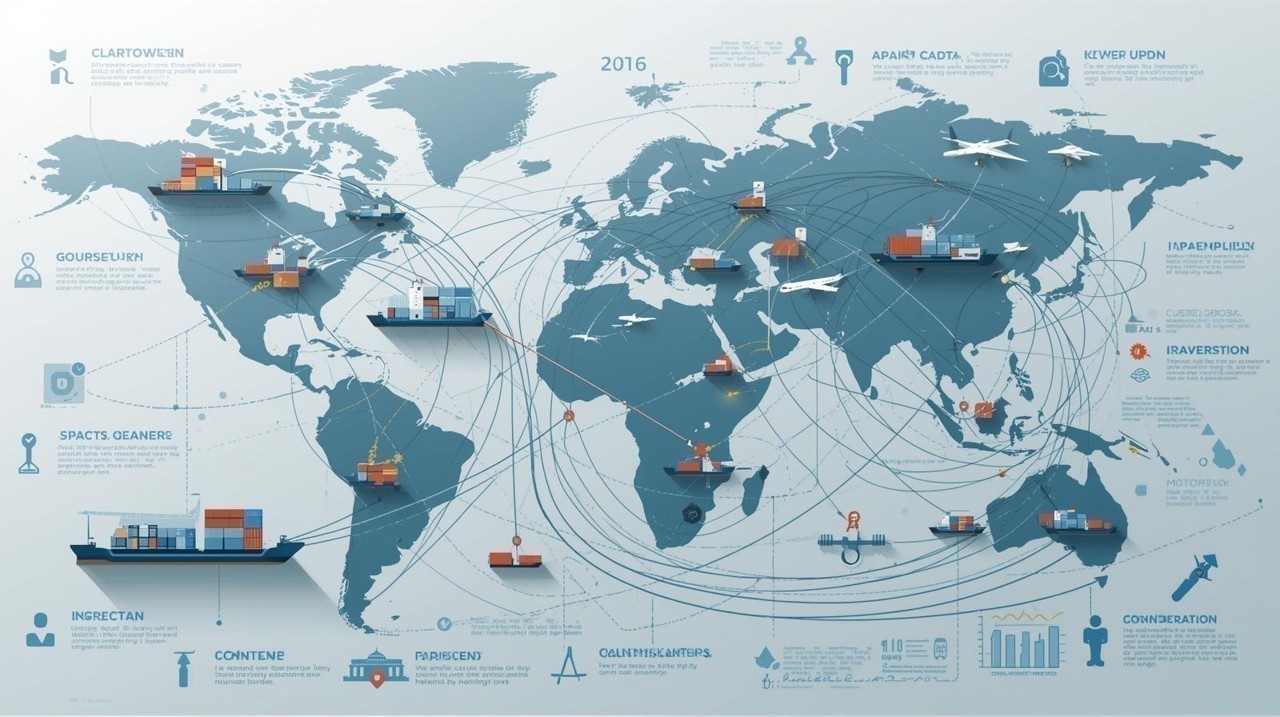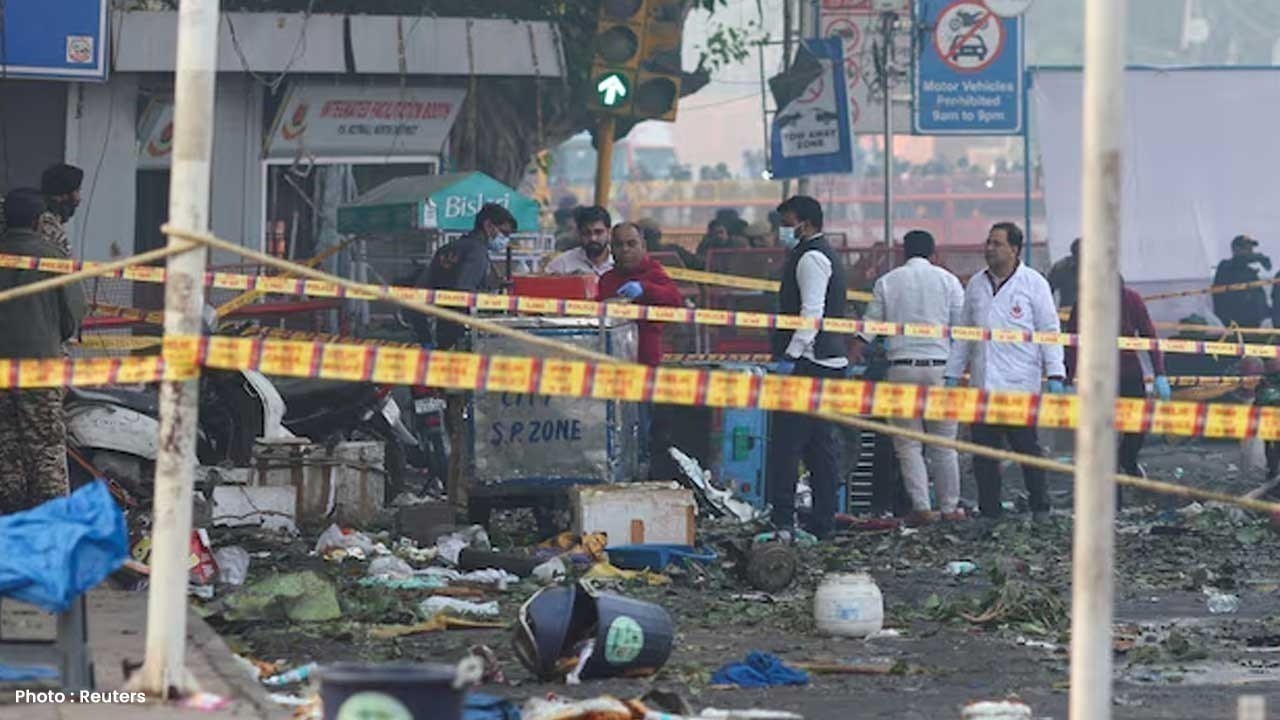
Post by : Sam Jeet Rahman
Disclaimer: This article is for general informational purposes only and should not be considered financial or legal advice.
The Red Sea crisis disrupted one of the world’s busiest maritime routes, forcing major shipping companies to divert vessels, extend transit times, and rethink logistics strategies altogether. What began as a regional security issue soon affected global markets, from rising shipping costs to delayed product deliveries. Today, the world is witnessing a major reset in how global supply chains operate, especially for regions heavily dependent on maritime trade like Europe, Asia, and the Middle East. This article explains how these changes are shaping new trade patterns, technologies, and long-term planning for businesses.
The Red Sea is a strategic trade artery connecting the Mediterranean Sea to Asia through the Suez Canal, handling nearly 12% of global trade. It is especially critical for shipping industries dependent on fast east-to-west routes. When disruptions began, shipping lines faced increased insurance, longer travel distances, and operational uncertainties. These pressures triggered a series of new approaches that businesses are now adopting to stay resilient.
When vessels were rerouted around the Cape of Good Hope, the journey added up to 14 extra days. This strongly impacted:
Higher freight rates
Increased fuel consumption
Delayed inventory cycles
Disruptions for retail, automotive, and electronics sectors
These cost escalations pushed companies to rethink their supply chain diversification strategies, a strong emerging keyword in global logistics today.
Businesses worldwide are taking major steps to reduce risk, avoid bottlenecks, and diversify sourcing. Here are the most significant changes shaping the future of supply chains.
Nearshoring means shifting production closer to the end consumer. The crisis accelerated this shift as businesses recognized the risks of depending on a single route or region. Nations in Eastern Europe, the Middle East, and Southeast Asia are becoming new manufacturing hubs. Nearshoring strategies also reduce shipping times, limit disruptions, and help companies maintain a more stable supply chain.
Before the crisis, companies relied on the Suez route as their primary shipping corridor. Now, more businesses are building multi-route logistics models, which include:
Alternative maritime routes
Rail corridors
Air-freight hybrid solutions
Land-bridge strategies through GCC and Central Asia
Using multiple routes gives companies flexibility when unexpected geopolitical events occur.
The crisis showed how vital real-time data and automation are for global operations. As a result, companies are now rapidly adopting technologies such as:
AI-based route optimization
Blockchain for secure trade documentation
Robotics in warehousing to reduce delays
IoT sensors for cargo tracking
Predictive analytics helps shipping companies avoid risky areas, plan fuel use, and maintain schedules with higher accuracy.
The Red Sea disruptions inspired GCC countries to strengthen regional trade connectivity. Initiatives like:
The GCC Railway Project
Expanded port capacities in UAE, Saudi Arabia, and Oman
New logistics free zones
These developments help reduce dependency on global routes by strengthening internal networks. The UAE’s position as a global logistics hub further accelerated, especially through Jebel Ali Port and major air-cargo routes.
Many companies are shifting away from over-reliance on East Asian manufacturing. Countries like India, Vietnam, Mexico, and the UAE are emerging as alternative production hubs. This trend reduces exposure to maritime chokepoints and allows companies to build more balanced global supply chains.
The crisis also led to higher fuel costs, pushing companies to explore greener alternatives. Trends include:
Use of biofuels
Testing hydrogen-powered vessels
Adoption of slow-steaming techniques
Environmental regulation compliance
These sustainable shifts are not just ecological; they also offer long-term cost benefits as fuel prices fluctuate globally.
Previously, companies prioritised low-cost sourcing. After the Red Sea situation, resilience now matters more. This includes:
Supplier diversification
Risk mapping
Building excess inventory for critical goods
Developing emergency response strategies
The shift shows how businesses now value stability over minor savings.
The UAE, already a global logistics powerhouse, is taking advantage of the supply chain reset by investing in:
Smart ports
Advanced air-cargo networks
Logistics free zones
Digital-trade platforms
Dubai and Abu Dhabi are positioning themselves as central nodes in the new global trade map, helping companies bypass unstable routes and maintain smooth operations.
For consumers, the shift may mean temporary price fluctuations, especially in imported goods. For businesses, the new supply chain model brings long-term advantages:
Shorter lead times through alternative hubs
Reduced dependency on high-risk routes
Better adoption of automation and technology
Stronger regional partnerships
While the crisis created short-term disturbances, the long-term effect is a more secure and diversified global trade ecosystem.
The Red Sea crisis served as a pivotal moment that reshaped how businesses view logistics and global sourcing. With rising geopolitical uncertainties, companies are embracing resilience, technology, and diversification as the new pillars of modern supply chains. As nations like the UAE continue to build world-class logistics infrastructure, the global trade system is heading toward a more flexible, technology-driven, and secure future.

Blue Origin Unveils Super-Heavy New Glenn 9x4 Rocket
Blue Origin announces New Glenn 9x4, a super-heavy rocket with nine first-stage engines, aiming to r

Bangladesh Police Unveil New Uniforms Ahead of Elections to Regain Trust
Bangladesh Police introduce new uniforms to regain trust. The Bangladesh Police move comes ahead of

Google Launches Nano Banana Pro for Smarter Image AI
Google unveils Nano Banana Pro, a new AI model for image creation and editing with smarter reasoning

Palash Muchhal to Marry Smriti Mandhana PM Modi Sends Blessings
Music composer Palash Muchhal to marry cricketer Smriti Mandhana on Nov 23, 2025. PM Modi sends hear

Delhi Car Blast Case: Four More Arrested As Anti-Terror Probe Widens
Delhi car blast case sees four more arrests as anti-terror agencies expand the investigation. Delhi

Indonesia Central Java Landslide Death Toll Rises To 30 Amid Search
Indonesia Central Java landslide death toll rises as rescuers continue searching. Indonesia Central

Divya Khosla Kumar Exposes Mukesh Bhatt on Savi vs Jigra Dispute
Divya Khosla Kumar releases a phone call proving Mukesh Bhatt never accused her of creating the Savi

Anthony Kim Shines With 64 to Stay in Hunt at Saudi Invitational
Anthony Kim shot a bogey-free 64 at the Saudi Invitational, moving to 11-under as he fights for a ch

Maxey Scores 54 as 76ers Beat Bucks in Overtime Thriller
Tyrese Maxey scored a career-best 54 points as the 76ers defeated the Bucks 123-114 in overtime, wit

West Indies Recall Kemar Roach for New Zealand Test Tour
West Indies bring back veteran fast bowler Kemar Roach for their Test tour of New Zealand, with youn

PTPA Nears Settlement with Tennis Australia Over Player Concerns
PTPA is close to settling with Tennis Australia over player welfare concerns and tournament practice

Mushfiqur Rahim Hits Century in 100th Test Against Ireland
Mushfiqur Rahim scored a century in his 100th Test against Ireland, becoming the 11th batter in hist

Shubman Gill Misses Second Test, Rishabh Pant to Captain India
Shubman Gill ruled out of second Test vs South Africa; Rishabh Pant captains, Sai Sudharsan steps in

Italy Beats Austria to Reach Davis Cup Semi-Finals 2025
Italy beat Austria 2-0 in Davis Cup to reach semi-finals, with Berrettini and Cobolli leading, setti

IIHF to Require Neck Guards at 2026 Milano Cortina Olympics
IIHF makes neck guards mandatory for players at 2026 Milano Cortina Olympics after a fatal 2023 inju